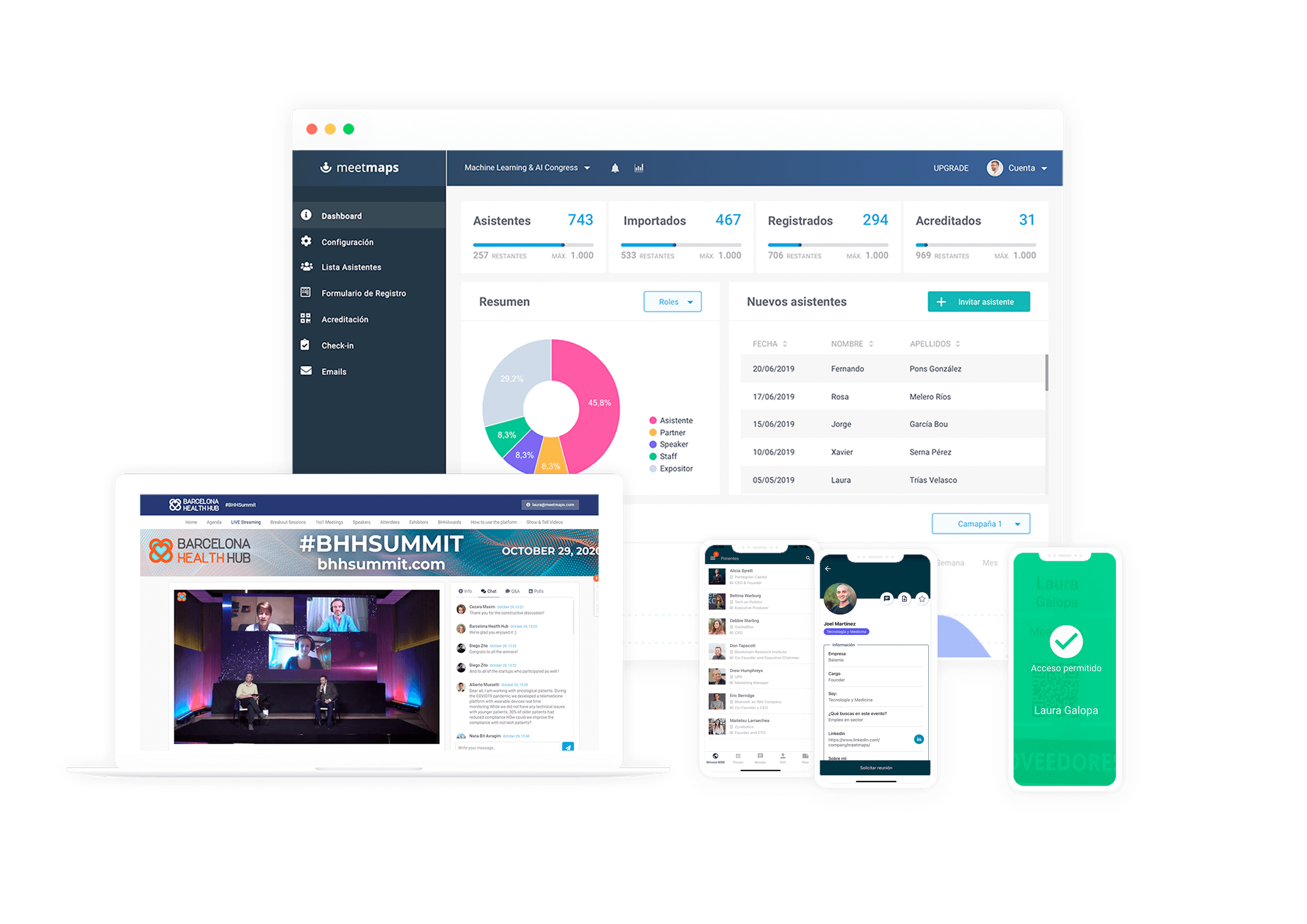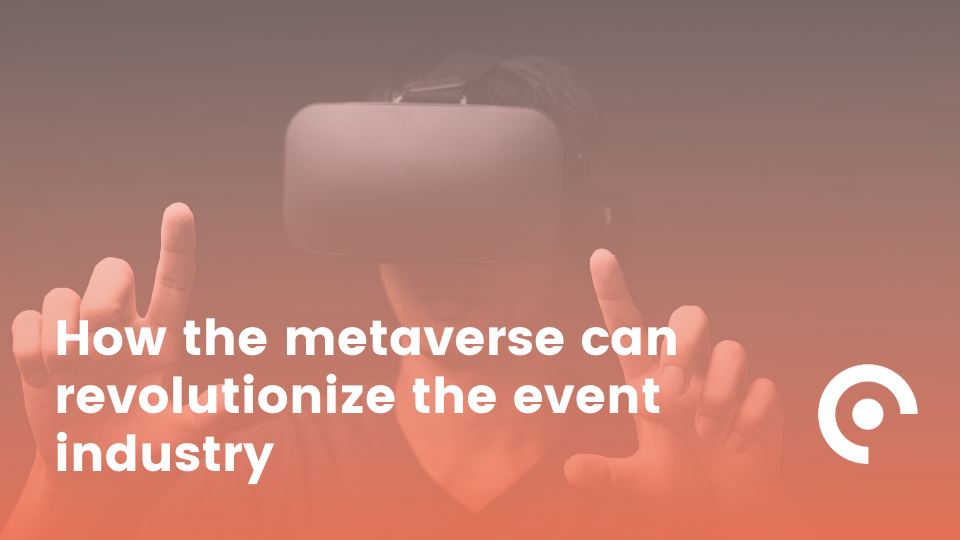The metaverse concept first appeared in 1992 by the American writer Neal Stephenson. In his novel Snow Crash, he described a kind of collective virtual space compatible and convergent with reality. Later, Mark Zuckerberg began to talk about metaverse, and many drew dystopian or science-fiction scenes in their minds, in the purest Matrix or Ready Player One-style, without realizing that the idea of the CEO of Facebook is not new. In fact, there are already certain precedents and current applications of the metaverse, events being one of the niches with the most projection in this new universe where the real and the virtual go hand in hand.
What is the metaverse really?
A strict definition of metaverse could be the one that Wikipedia itself gives us: an environment where, through software and represented by avatars, people interact in cyberspace. Let’s say that it is a virtual world that we will access through hardware and software elements and in which we can do practically anything: talk to each other, attend events or go shopping. The idea of this virtual world is built on the promise of serving as the epicenter of experiences similar to those of real-life, cyberspace where people will reproduce our social dynamics. Precisely this promise is what raises so much expectation about the metaverse and, at the same time, generates so much concern among the public. However, it is not necessary to assume the worst to guess that there will be very interesting applications of this new fusion between social relationships and technology.
“The rise of virtual interaction as a result of the COVID-19 pandemic, together with the boom of NFTs and the popularization of cryptocurrencies, have given the little push that the metaverse needed to capture enough interest and start advancing unstoppably. On the other hand, the new generations – present and future professionals – have grown up playing video games online with people from all over the world, that is; interaction in virtual environments is fully integrated into their way of relating. In addition, in an already globalized world, geographical barriers hinder the functioning of our socio-economic system. In this context, the metaverses open up a new horizon full of possibilities yet to be explored. In short, we live in exciting times. Projects that I follow very closely, such as Decentraland or The Sandbox, are the gateway to a new world that aspires to change the rules of the game. I invite all curious people to dig beyond the most superficial layer of the metaverse and discover its full potential, which is not little!”
What applications does the metaverse have?
The metaverse opens up a world of almost infinite possibilities to the user. From attending concerts to exhibitions or product presentations, through virtual work meetings, a project that Microsoft has openly stated its intention to join. The interactions we were talking about may not only be social, but also economic. Yes: money transactions may take place in the metaverse, which cannot be understood without the evolution of cryptocurrencies and NFTs (Non-Fungible Tokens). In other words: it will be possible to make purchases online in the metaverse without moving from our sofa or desk, but with the added bonus of doing so from our avatars in a virtual world. It may sound too fictitious, but the truth is that it seems that Zuckerberg is serious about his bet. In addition, there are already precedents and a great projection of use of the metaverse, such as the concerts that Ariana Grande or Travis Scott gave on the Fortnite platform, television contests such as the Metaverse Talent Show 2021, or fashion shows such as the Metaverse Fashion Week next month. March 2022, where brands such as Zara, H&M, Gucci, or Balenciaga will participate. And it is that the pandemic has taught us that there are many things that people can do remotely: online shopping, teleworking, videoconferences, streaming viewing of live events… As much as we miss attendance, technology has opened up a world of possibilities, a scenario that has real options to survive and prevail even when the world completely returns to normal. 
What technical challenges are facing the metaverse?
For this virtual world to work properly, technology will undoubtedly have to evolve and become more democratic so that everyone can enjoy this immersive experience. We are talking, on the one hand, about the hardware requirements, which are still not up to par, although quantum computing is expected to help solve the problem in the not too distant future. Even so, there are already devices capable of providing a very effective interface, such as virtual reality glasses and augmented reality glasses. On the other hand, the proliferation of 5G augurs telecommunications with almost non-existent latency, something essential for the metaverse to work without “jerks” or cuts. Otherwise, it risks losing popularity as it could not offer such a promising user experience. Likewise, at the software level, the metaverse will depend on a very well-developed AI (Artificial Intelligence), capable of correctly interpreting our gestures and movements and transferring them to those of the avatars.
Why is the metaverse interesting for the realization of events?
Predicting that the metaverse is going to be the place where a large part of our social or work life takes place is perhaps going too far, but there is no doubt that the short-term projection of this idea has great benefits for holding events. Some of them are the social interaction, the high degree of personalization, the virtual alternative that it provides to the organizers and the ease in organizing events, without risk or crowds. In addition, the possibilities of building virtual spaces and environments through software are much greater than those that can be carried out in the real world. It is true that most of us love human contact: from a young age, we learn to relate to our peers and, to a greater or lesser extent, this learning is supported by our condition as gregarious beings. However, what could be considered an argument against the metaverse can easily be reversed as a virtue: isn’t it attractive to be able to interact with people from anywhere in the world without leaving our room or our office? Have we ever stopped to think about the great possibilities that this entails? Some of the events mentioned have taken place at a time when mass concentrations of people have been in the spotlight due to the global health crisis. Perhaps we have learned that physical displacement is not strictly necessary and that in this way we avoid generating CO2 emissions and pollution in the environment. We do not have to leave our physical location to be in contact with other people, to network and do business, to meet new friends, to see an exhibition, to attend a concert or a business Kick-Off, for example.  For all these reasons, it is logical to think that our desire to interact again in person in a massive way with many people will be the thread that the promoters of the metaverse pull to offer an alternative modality, a new universe where the possibilities are multiplied and that, if used well, it can bring people closer (rather than farther away).
For all these reasons, it is logical to think that our desire to interact again in person in a massive way with many people will be the thread that the promoters of the metaverse pull to offer an alternative modality, a new universe where the possibilities are multiplied and that, if used well, it can bring people closer (rather than farther away).
